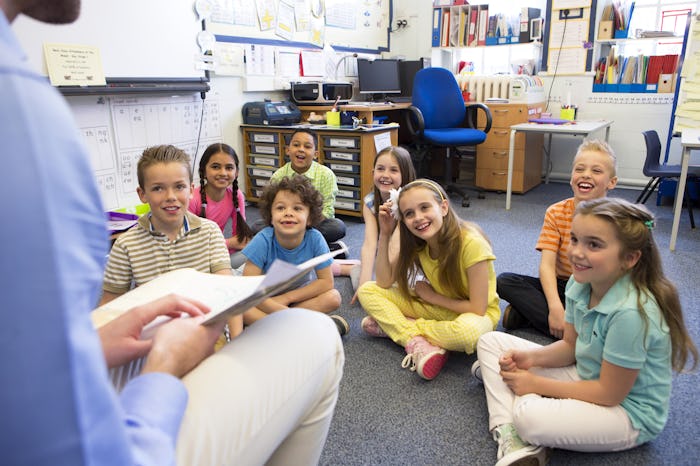Life

11 Children's Books That Teach The Importance Of Understanding Privilege
Over the past few years, the discussion of racial matters, privilege, and abuse against minorities has hit a new height. With the deaths of many blacks a occurring with little to no convictions for their killers, the need to shed light on how both racism and privilege works to children is more important now than it has been in recent years, and having children's books that teach the importance of understanding privilege can help do so.
As the deaths of Alton Sterling and Philando Castile brought about a sense of despair throughout the black community, I engaged in a conversation with my older sister about her thoughts on the matter. A mother of one, my sister told me that there's fear in her heart for her child because of the way things have been going for our community lately. Another friend, whose child is mixed, had similar sentiments because she has a son who will identify as being black as he gets older.
Though we've come a long way from segregation, the visibility of current day racism and privilege has been noted and it has become apparent that if not educated correctly now, the generations to follow will be repeating the same things that the generations before us fought to destroy. If explaining the importance of understanding privilege is something you're not well-versed on, perhaps these 11 children's books can help you.
1'The Skin I'm In: A First Look At Racism' by Pat Thomas
Though it's important to educate your children on what's happening currently, giving them a little bit of a backstory on racism is just as important. The Skin I'm In by Pat Thomas helps do that.
2'We're Different, We're The Same' by Bobbi Kates
Bobbi Kates Sesame Street-based children's book We're Different, We're the Same is a great way to begin the discussion on racial harmony.
3'White Socks Only' by Evelyn Coleman
White Socks Only tells the story of a young black girl who is under the impression that she's able to drink from a "Whites Only" water fountain because she is wearing white socks. A great story dedicated to explaining privilege and segregation, White Socks Only is a good place to start with your kids.
4'One Crazy Summer' by Rita Williams-Garcia
Rita Williams-Garcia's book One Crazy Summer tells a story of three sisters who experience the Black Panther party firsthand and brings about a discussion on cultural and ethnic identity.
5'All American Boys' by Jason Reynolds & Brendan Kiely
Authors Jason Reynolds and Brendan Kiely's story of stereotyping and racial profiling is one to be read, and read again in the novel All American Boys.
6'The Sneetches And Other Stories' by Dr. Seuss
As with many of Dr. Seuss's books, The Sneetches and Other Stories gives subtle yet impactful stories of social issues that are still relevant today.
7'Henry's Freedom Box: A True Story From The Underground Railroad' by Ellen Levine
Henry's Freedom Box by Ellen Levine is a great representation of a young slave child fighting for his freedom.
8'Separate Is Never Equal: Sylvia Mendez and Her Family’s Fight for Desegregation' by Duncan Tonatiuh
If the talk of segregation and racism is one that needs to be had, Duncan Tonatiuh's book Separate Is Never Equal is a great conversation starter.
9'The Lions of Little Rock' by Kristin Levine
Having a conversation with your children about segregation and fighting for the right's of others despite the color of their skin is extremely important and Kristin Levine's novel The Lions of Little Rock can assist with opening up the dialogue.
10'Chocolate Me!' by Taye Diggs
For black moms, the talk with your young children about embracing and loving their skin, hair, and everything about them can be had through actor Taye Diggs's book, Chocolate Me!
11'Sit-In: How Four Friends Stood Up by Sitting Down' by Andrea Davis Pinkney
Not all protests have to be violent as we're learning in many present day cases, and Andrea Davis Pinkney's book, Sit In: How Four Friends Stood Up by Sitting Down, gives us a history lesson on how peacefully standing up for what you believe in can bring about change.